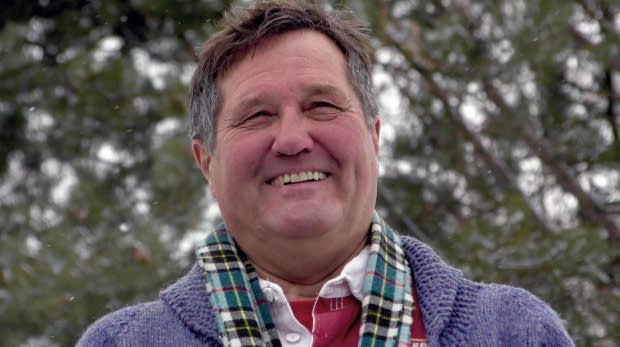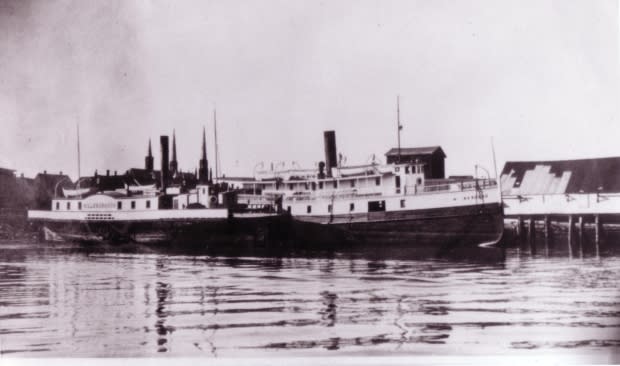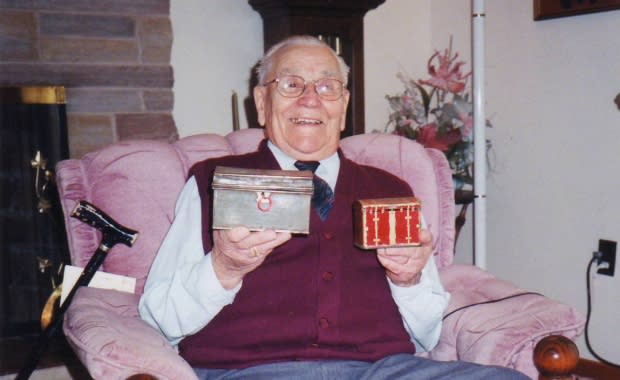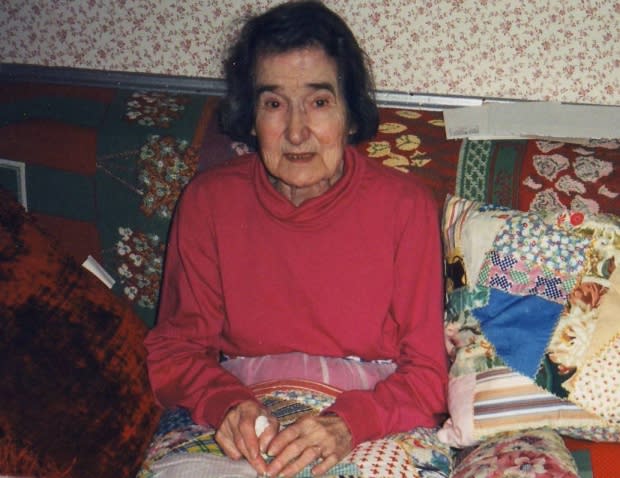What they ate in P.E.I.'s Bygone Days
Reginald "Dutch" Thompson's column The Bygone Days brings you the voices of Island seniors, many of whom are now long-departed. These tales of the way things used to be offer a fascinating glimpse into the past. Every second weekend CBC P.E.I. will bring you one of Dutch's columns.
With spring in the air, a fresh Bygone Days column has stories of food, from Islanders named for plants — like Violet, Pansy and Herb.
Violet MacEachern remembered taking many jaunts up the West River on the Harland to visit her grandparents' farm.

In Charlottetown Harbour 100 years ago, the steamboat S.S. Harland would be almost ready this time of year to fire up its engine to take schoolchildren and church groups for outings like picnics. The Harland made calls at wharves up the East River, the West River and up the Northumberland Strait to Victoria. The service went from 1908 to about 1934.
Violet was born in Charlottetown in 1910, back in the days when you didn't have to go out to the country to see farm animals.

Keeping a cow downtown
"In the earliest years they had a cow, they liked to have their own milk. We were living on Great George Street. A cow and a pig for the winter," she said. Local farmers took away the manure, she said.

Pansy Reid was born a Myers in Brudenell in 1898 and lived to be 101.
She and her husband Gavin were married 76 years, running one of the best dairy farms in Canada. Windswept Farm raised top-rated Ayrshire cattle and the Reids were pioneers in door-to-door milk delivery on P.E.I.
"We'd separate the cream. Milk the cows and fill the bottles and cool it — we had a tank in the porch and pump and we used to cool it there," she said. "And deliver it to the houses in sleighs and in the car in summertime. There'd be pint of milk and quarts of milk," said Reid.
They had two cars and made deliveries seven days a week, and got eight cents for a quart of milk, she said.

"Then it went up to 12 cents," her husband Gavin chimed in. "You could gather up some money at 12 cents, 100 quarts a day."
Breakage wasn't so much a problem as theft, Pansy recalled. "They wouldn't put them out, they'd keep them for jam and preserves and stuff ... used to make me awful mad."
Pansy learned to drive in a 1929 Model A Ford, a car that had compartments for flower vases in the dash.

Bicycle soup
Herb Schurman was born in Summerside in 1911, and he loved history.

He told a story about Dick Clark who was "noted to be quite a character." Clark was a gardener who provided local restaurants with vegetables and eggs. He was making a delivery to a local restaurant's back door and took a peek at what was cooking.
"There was a great big pot on the stove with a cow's head in it, and the horns still on it," Schurman said. "When he saw the horns sticking out of the pot, he says 'We're going to have bicycle soup for dinner!' It just looked like the handlebars of a bicycle." Clark's nickname for a long time after that was Bicycle Soup.
Clark lived out near Read's Corner, the complex intersection just east of Summerside where there is now an Esso station and the ADL milk plant.

The Read family ran a tannery and made boots and shoes there. They may have been related to the Summerside Reads who were well-known sea captains. They had two wharves with big warehouses on the waterfront, one for coal and one for hay, potatoes and grain.
One time the circus came to town and was parading down Water Street when an elephant broke loose and headed for Captain Read's grain warehouse. They found it in a pile of oats happily munching away, and the story goes the sheriff actually arrested the elephant for break, enter and theft.
'Everything was in a boat'
Elsie Collier was born in 1912 near Burgeo on the south coast of Newfoundland, and lived in Murray Harbour for more than 60 years, where she worked at a local lobster processing plant.

Elsie's mum's name was Matilda, but everyone called her Tillie, as in till the soil. Like many Newfoundlanders, Tillie's family came from a long line of fishermen.
"They couldn't do nothing else because the ground was so poor, there wasn't too much earth — some of them couldn't even grow a garden," said Collier.
"And some of them brought earth from miles and miles, in a big yellow dory ... and spread it over the rock to get a few potatoes or whatever."

The family had sheep and three cows. They'd cut grass for hay for them and bring it back to their property in their dory, storing it in their barn.
"Everything was in a boat my dear," she told Dutch.
Murray Harbour where Collier lived was the last schooner port in the Maritimes, where they'd ship off schooner-loads of vegetables and potatoes to Newfoundland every year.
She knew the local ship captains, and they would bring back some of the Newfoundland delicacies she missed like seal flippers, cod tongues and gallons of seal oil, which she would use to deep fry homemade sugar donuts.
More P.E.I. news

